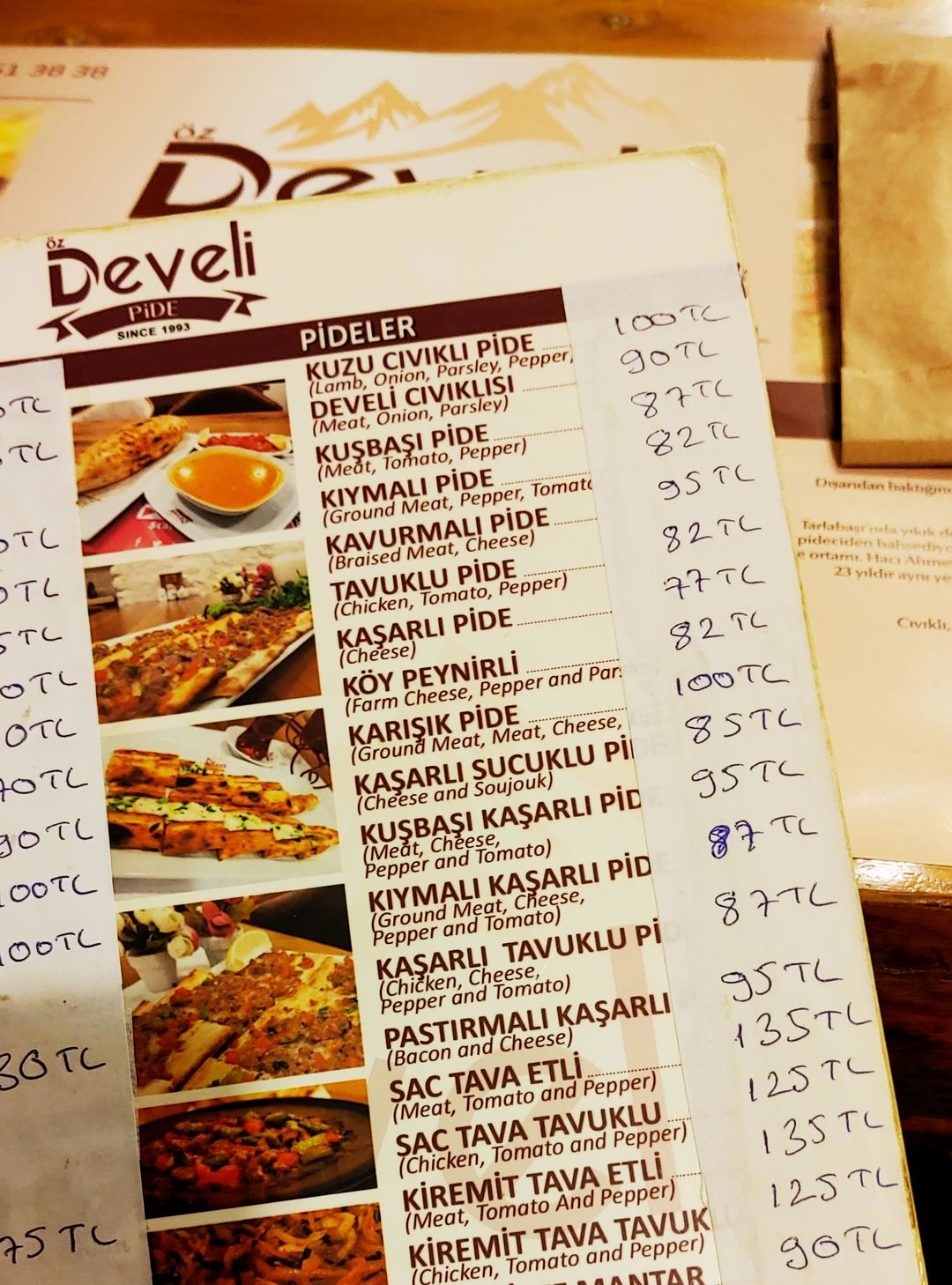Lira goes...
Lira goes... well, where to, that's the big question. But how do you live in a country with such high inflation like turkey?

İstanbul, beautiful, big, old and, well, cheap. At least for an average German income, even very cheap. Noticeably, the prices in the supermarkets are rising from day to day. At least for the locals. Billions from the state coffers slow down this rise somewhat, but still the consequences are devastating.
Almost none of the people between 20 and 30 that I have spoken to here in İstanbul are debt-free. The credit card is a constant companion for every purchase. Cash has been displaced to a large extent here. Actually a desirable development I would love to see in Germany, but the background is sad. Prices simply change too quickly for people to want to have large amounts of cash. Those who can, have their money in a foreign currency in the bank or under their pillow. There is a great deal of mistrust in the state and, accordingly, in the banks. Many fear that the government might try to access these foreign currency reserves of the population.
In the last 12 months, the Turkish lira has been on a rapid downward slide. I remember a time when one euro was roughly two lira. Now, I reckon with 100 liras here, which is about 5 euros. So, as of today, a good breakfast here consisting of menemen (the Turkish equivalent of shakshuka), one or two teas, maybe a piece of cake costs about 120-140 Turkish liras. That's about 6 euros. When I arrived in early January, a can of Coca-Cola cost about 9.50 TL, depending on the shop. Today, however, it is already 10.75 TL. A small increase, but in relation to local wages, which are not rising at the same rate, devastating in its impact. Hardly a restaurant here has a menu without a pile of adhesive strips with new prices stacked on top of each other. The lira is depreciating fast.
This problem is exacerbated by the fact that many prices and costs here are directly linked to the euro or the US dollar. It is not uncommon, for example, for rent or instalments for loans to be paid in dollars, but income to be paid in lira. A vicious circle. In addition, many products in Turkey are more expensive here than in Germany due to poorer trade relations. This is noticeable, for example, with particularly expensive products.
For example, the DYSON Supersonic HD07 Hairdryer Anthracite/Fuchsia (1600 Watt) costs in Germany 428,99 €.[:] The same product costs the equivalent of 438.47 euros in Turkey as of today.[:] A difference of about 10 €, which may seem marginal, but for the population here is equivalent to a complete lunch with drinks, starter and dessert in a restaurant.

One of the main reasons for this is Turkey's financial policy. The local dictator relies on the help of "God". However, believing in spirits has rarely resulted in sensible economic policy. For example, a common instrument of raising the key interest rate when inflation is high is.[:] The whole thing is absolutely fatal for the population and manifests itself, for example, in the fact that in my time here I have hardly seen people ordering anything other than tea with their meal. In the past, at least a water or a Coke was commonplace like in our country. Also, you hardly see people walking around on the street with beverage cans anymore. What is good for the environment here is mainly a sign of the population's austerity measures. It is simply too expensive. In numerous conversations with locals my age, another consequence of inflation also became clear: social life suffers a lot! Coffee with friends at the weekend has become a financial challenge.